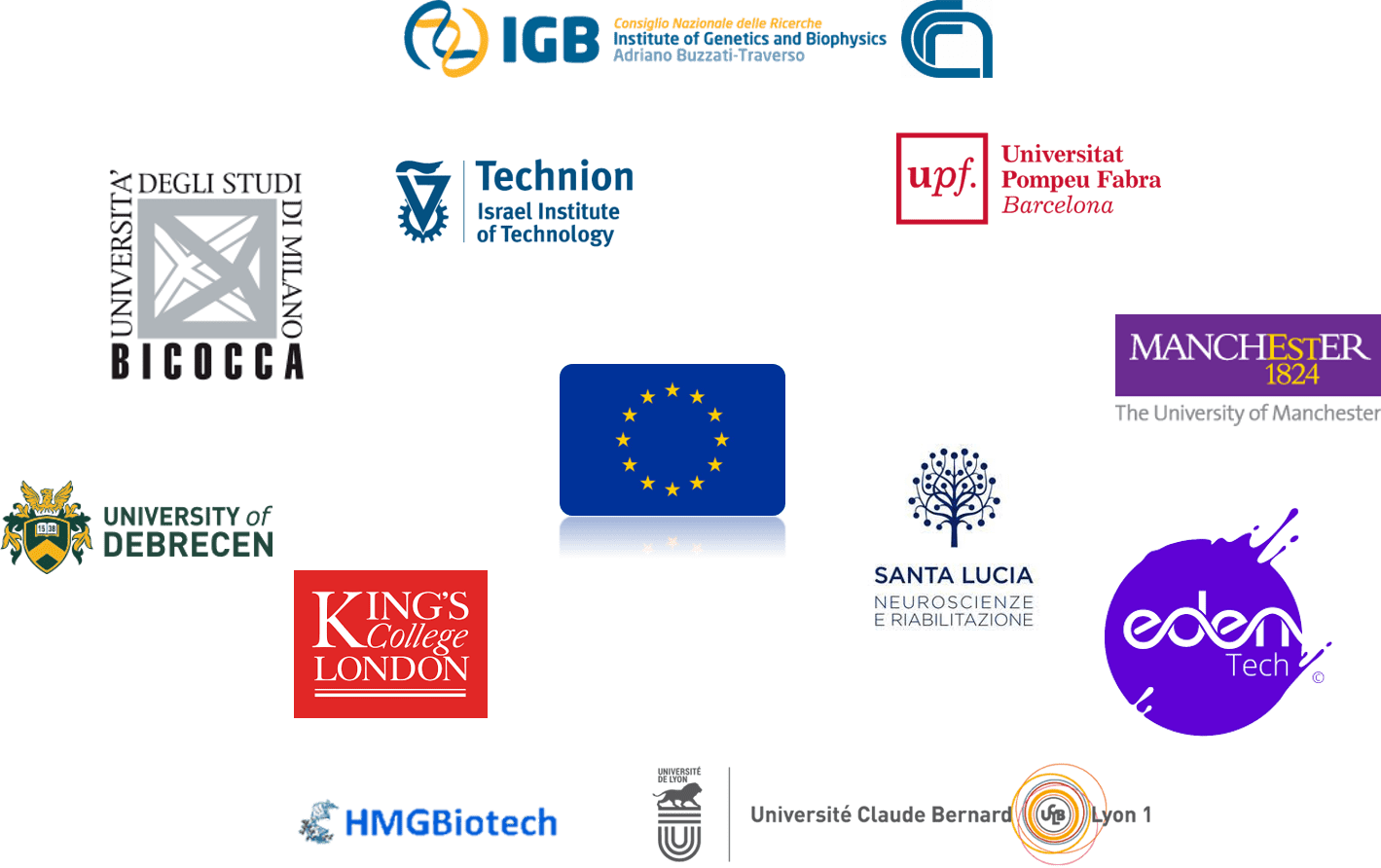Eden Tech & Renoir EU Project: Muscle-on-a-Chip for Aging
Eden Tech is proud to announce that on April 30th this year, the company will begin its work on the RENOIR ITN European project, to investigate how inflammatory response and other elements hinder the repair of damaged muscle tissues, and to develop a muscle-on-a-chip platform as model for pharmacological assays. But Eden Tech is not alone in this venture! RENOIR project involves universities and companies across Europe! Read how this ambitious collaboration will contribute to the future of muscle regenerative medicine.

REcreating the ideal Niche: environmental control Of cell Identity in Regenerating and diseased muscles
The Eden Tech and RENOIR ITN Project
RENOIR (stands for REcreating the ideal Niche: environmental control Of cell Identity in Regenerating and diseased muscles) is a Research project focused on muscle regeneration and aging, led by the University of Milano-Bicocca, Italy. This project is classified as a European Training Network, a sub-division of the ITN (Innovative Training Network), for young researchers to create a new generation of researchers with interdisciplinary skills to support European scientific and technological ambitions.

Fig 1: RENOIR Project Beneficiaries
The Eden Tech and Renoir project receives funding from the European Union’s Horizon 2020 research and innovation program under Marie Skłodowska-Curie grant agreement No 860034, for 13 young Researchers who will be hosted in 11 universities or companies across Europe (Fig. 1): The University of Milano – Bicocca, IGB-CNR (Institute of Genetics and Biophysics), the Université Claude Bernard in Lyon, the Pompeu Fabra Universitat in Barcelona, the University of Manchester, the University of Debrecen, the Fondazione Santa Lucia in Rome, the University of Naples, the King’s College London, Eden Tech, the Technion Research & Development Foundation Ltd in Israel, and HMG Biotech S.r.l in Milan.
Eden Tech will welcome two of these Ph.D. students on May 1st.
Silvia Brunelli
RENOIR Coordinator
Frederico Granata
RENOIR Project Manager
Antonella Sgambato
RENOIR Project Manager
Fig 2: RENOIR Network Management Team from the University of Milano-Bicocca
Eden Tech and Renoir's Problematic
Muscle aging is at the center of the Renoir concern. Its main objective is to ultimately unravel the ensuing gradual decline in muscle mass and functionality. These characteristics represent the most critical and complex features associated with aging and muscle disease in humans.
Using new and integrated biotechnological tools, the consortium will study the behavior of skeletal and cardiac muscle cells.
Indeed, one of Europe’s major challenges for the decades to come is to maintain its aging, healthy and active population. It will also improve the quality of life of those affected by chronic diseases.
Degenerative diseases of muscle and aging
Degenerative diseases of muscle and aging are not caused solely by the loss of structural protein function and/or the failure of muscle stem cells. They are also due to the complex interactions of these cells with the surrounding environment.
During environmental changes, muscle repair and regeneration can be delayed and modulate the inflammatory response. There will then be an exacerbation of the disease and the development of fibrosis. These interactions can be chemical, cellular, physical, or mechanical. A multidisciplinary consortium was therefore created to study the process in all these aspects.
Interdisciplinary process
To combine the use of advanced biomaterials and biopharma to optimize ex vivo modeling of the niche and to achieve in vivo delivery of compounds for efficient tissue maintenance and regeneration.
- RENOIR Project
Molecular determinant of cell identity
The first axis of the project will study how the different muscle stem and progenitor cells acquire and conserve their fate. They will use advanced technologies in genetics and bioinformatics, like genetic lineage tracing strategies in transgenic mice and loss/gain of function model.
Environmental control of muscle homeostasis, regeneration, and aging
This second axis will focus on understanding muscle regeneration and how fibrosis develops in pathological conditions.
They will focus on how the inflammatory, myogenic, and vascular components act in either direction: regeneration or fibrosis.
Biomaterials and biological drugs-assisted regeneration
For this last axis, Eden Tech will use its advanced new biomaterials and devices. We will build Flexdym devices to model the extra-cellular matrix and the muscle niche. These organ-on-chips will help study the role of the biochemical signals in muscle regeneration.
Eden Tech will host 2 early researchers for three years to work on this project.
Eden Tech Participation to Renoir's project
The Organ-on-Chip system will allow us to understand how the inflammatory, myogenic and vascular components impact the muscle regeneration and fibrosis [1].
Several studies support the emerging concept that inflammation controls the behavior of stem cells involved in tissue repair [2],[3]. This balance is likely distorted with aging [4] and in patients with late phases of chronic diseases, such as dystrophies [5].
We want to identify critical cell mediators and the key factors they produce that could be exploited in cell and pharmacological therapy for muscle disease.
Gwen and Thomas will join the RDI team to build a Microfluidic bioreactor with high control over fluid and reagent delivery. The organ-on-chip will reconstruct the muscle niche in vitro : a Muscle-on-a-chip. Then, they will observe the Endothelial to Mesenchymal Transition thanks to living cell imaging technology.
Microfluidic devices will be design and developed to control the cellular microenvironment. Taking advantages of EDEN Tech material technology and expertise, the microfluidic device will be prepared using the most suited materials (Flexdym, hydrogel, Glass,…) for the targeted applications and features.
References
[1] Ph.D. Programme in Translational and Molecular Medicine (DIMET), University of Milano Bicocca 🔗
[2] Munoz-Canoves, P., and Serrano, A.L. (2015). Macrophages decide between regeneration and fibrosis in muscle. Trends Endocrinol Metab 26, 449-450. 🔗
[3] Tidball, J.G., and Villalta, S.A. (2010). Regulatory interactions between muscle and the immune system during muscle regeneration. Am J Physiol Regul Integr Comp Physiol 298, R1173-1187. 🔗
[4] Leung, D.G., and Wagner, K.R. (2013). Therapeutic advances in muscular dystrophy. Annals of Neurology 74, 404–411. 🔗
[5] Serrano, A.L., and Munoz-Canoves, P. (2017). Fibrosis development in early-onset muscular dystrophies: Mechanisms and translational implications. Semin Cell Dev Biol 64, 181-190. 🔗
Dr. Constance Porrini
PharmD. and Ph.D. in Microbiology from National Research Institute for Agriculture, Food and the Environment (INRAE)

